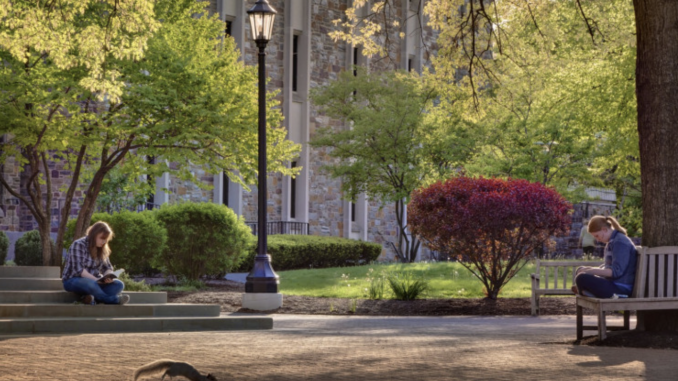
Jenna Smith (jesmith2@ursinus.edu)
With the retirement of our beloved Dr. Rebecca Jaroff, there will be a hole left behind in the English Department. The process of hiring a new professor is a tedious one, and many professors within the department have reached out to their students asking them to meet with various potential candidates for input on this hefty decision.
The search is led by Associate Professor, Dr. Matthew Kozusko alongside Department Chair, Dr. Kara McShane and Associate Professor, Dr. Nzadi Keita. The journey began last year in the spring, when the department first applied to hire another faculty member. This application was then reviewed by the Faculty Council and staff in Academic Affairs, and once approved, a job listing was posted this September. Applications were due November 1st and more than 200 people applied for the position, some even from across the globe.
After the initial applications were reviewed by McShane, Kozusko, and Keita, sixteen potential candidates were interviewed, and three were brought to campus. Dr. Anthony Nadler from the Media and Communication Department aided as the team interviewed candidates over Zoom. Personnel from other departments, in this case Nadler, are needed in this process in order to provide an outside perspective of the campus and department’s needs. The three candidates brought to campus met with faculty, the Dean, the President, and students in the English Department. In those specific student and candidate meetings, the candidates talked about their research, asked students questions about the department and other campus needs, and listened to the students’ questions as well. The candidates also taught a class while visiting so faculty and students could get a better understanding of their teaching style and skills.
The department is looking to hire someone specifically focused in Trans-Atlantic Literature, which focuses on literature that is written about people in that area. They also specifically searched for candidates who’d thrive working with other departments and in interdisciplinary studies. They mainly want someone “whose work puts literature into global contexts, basically, and who works across traditional national, ethnic, and temporal boundaries,” explained McShane.
Student input in this search is an integral part in the decision making process. After meeting with candidates, students answered questions about their meeting with the candidate, to give feedback to the committee. McShane also stated, “Student feedback on what our candidates are like in the classroom is incredibly valuable, as are the informal meetings where students can ask questions, learn more about our potential new professor(s), and give those candidates a sense of how awesome our students are.”
